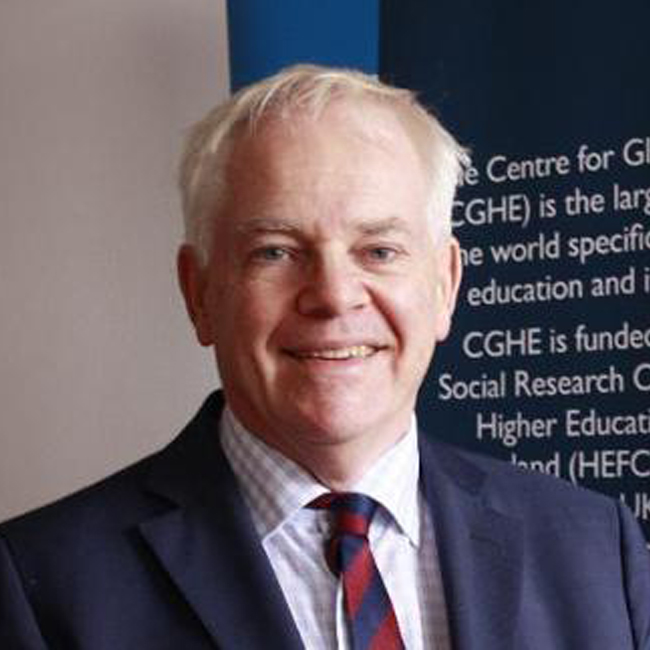
Professor Simon Marginson
Customarily, at the start of a new academic year, planes packed with migrating higher education students are streaking across the planet’s skies. In 2018, a global total of 5.6 million students were heading abroad for courses of 12 months or more. The United States led the way when it came to international student mobility, with a figure of just under a million. This year is different.
In the first of Lingnan University’s Global Higher Education Webinar Series looking at the ramifications of the COVID-19 pandemic, the internationally-renowned Professor of Higher Education at the University of Oxford, Simon Marginson, presented an overview of the resilience of education systems across the globe, and their prospects once we emerge from the current crisis.
“I think we're looking at a timescale determined by the vaccine (development) process,” Professor Marginson explained. His best guess is late 2021 or early 2022 for a tested vaccine, and later in 2022 for broad worldwide distribution. In other words, he believes, that on campus, 2021-22 will be much like 2020-21.
Such a duration means some of the challenges higher education systems are currently facing, and their responses to them, will become institutionalised. These challenges include: supporting medically, physically, psychologically or financially vulnerable students; managing students’ desire for social interaction; and, ensuring the financial sustainability of universities in countries where they lack strong government support.
Professor Marginson pointed out that COVID-19 has hit at a time of worsening geo-political rivalry, the weakening of multilateral institutions, an implosion of national politics, and an increase in state control. Despite these trends, he noted the public good model in academia remained relatively strong, and the levels of US-China collaboration in science and higher education remarkably high.
Reflecting on the way in which institutions in the anglophone countries are coping with the pandemic, Professor Marginson highlighted the UK.
"In the UK, the big worry was what might happen to revenue, to the bottom line, in what is a market-based system where institutions survive partly on international student fees." UCL – the country’s third-largest research university – gets £300 million, or 20.2% of its income from non-EU student fees.
In response, universities in the UK decided to continue offering face-to-face classes in 2020-21 academic year, and enrolment numbers have, indeed, stayed up, at least for now.
Whereas, the more effective response to the pandemic in East Asia, based upon cultures which tend to emphasise social responsibility over individualism, has meant the higher education picture in the region looks even more robust and stable.
India, with its high COVID-19 infection rate and market-based education system, has had a very different experience, however. While, in the midst of the pandemic, the Australian government has given itself a damaging veto over universities’ China links.
Professor Marginson expects international student mobility to take at least five years to recover, with significant regional differences."In East Asia student mobility has been growing for 15 years and will now grow a little bit faster."
Though US and UK institutions can probably rely on their reputations, Australia might struggle longer to recover, he suggested.
There is one change, however, that Professor Marginson believes will become permanent – the offering of two, very differently priced, forms of higher education. “Elite education will remain face-to-face, along with some online assistance and resources. But mass education in some countries, though not all, will be pushed towards the online-only mode, which will be less formative, less rich for many students."
The Global Higher Education Webinar Series is co-organised by Lingnan University School of Graduate Studies, Institute of Policy Studies, and Asia Pacific Higher Education Research Partnership. Six internationally renowned scholars are invited to discuss the impacts of COVID-19 pandemic on global higher education.


